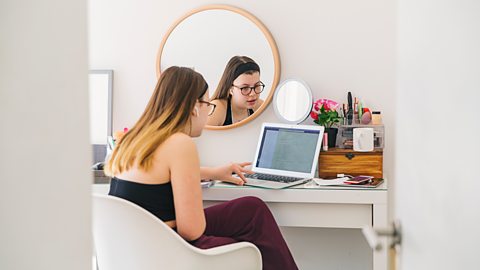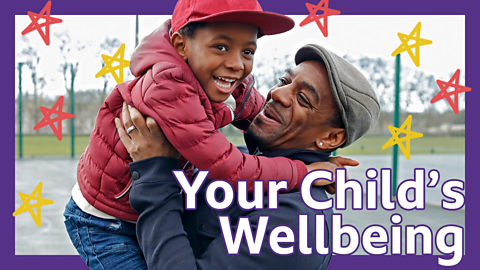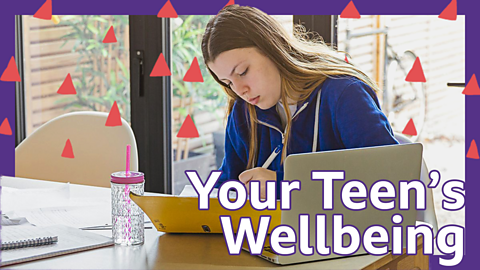Adanna and David have been vlogging their family lifestyle and travel adventures on YouTube since 2014. They wanted to share their experiences as a mixed ethnicity couple with two young sons and to talk about how they are explaining diversity and race to their boys.
Adanna:
It starts from a place of love, it really does start from a place of love.
In light of what’s been happening with the Black Lives Matter movement, and the fact that we’re parents to two young kids who are biracial, we’ve used the opportunity to shed light on what’s really been happening, our experience with racism as a couple and more practically how to deal with it. How we as parents can incorporate racial education…
David:
Absolutely.
Adanna:
…very early on in our households, because we believe that it all starts at home.
David:
Exactly, so when it comes to obviously talking about racism and teaching your kids racial equality, the age of your children of course matters a lot.
If you have teenagers you can probably sit them down and you know, properly directly address it, and talk about the footage everybody isseeing on TV…
Adanna:
Yeah.
David:
…whereas of course if you have children in our… the age group that our kids are in, which is two and four, you can’t really do that.
So what we believe is very, very important, and we have done with our children is to rather incorporate small little elements into the daily life.
Games, the books, the… you know, toys they have etc.
And especially we feel with books that they can see there are certain heroes, you know…
Adanna:
Yeah!
David:
…or just main characters, or even if it’s just, general content that also showcases different races and different genders and everything.
Adanna:
Yeah definitely.
David:###
And we feel this has worked really, really well and we think is important.
Adanna:
Yeah.Not every family would be fortunate to live in a very diverse neighbourhood let’s just say, so from the schools that your kids attendmight be all white to the playgrounds they go to, to the community you engage in, to the churches that you go to, they might not have the opportunity for that diverse interaction.
And whilst we believe that that should be the case we know that it’s a long way ahead for some neighbourhoods, but you can start at home through what you introduce them to.
It starts from a place of love, it really does start from a place of love, rather than waiting until the age where you can tell them about all of the horror that’s happening you can start with books where the, like David said, the hero could be somebody who is not white…
David:
Yep.
Adanna:
…somebody, a person of colour, it could be a child that doesn’t look like them, and that way from a very young age they start to understand that there are people doing great things and they don’t all have to look like me.
The diversity could be a girl who is in a wheelchair, you know so there’s physical diversity as well so all elements of equality and diversity is very important to introduce very early on with the kids so… I’ll start with one of my first books…
She Persisted. This is a book by Chelsea Clinton that takes you through a lot of great women who’ve made history. You can see here from the cover there is, you know, a black girl, a white girl in the wheelchair, I think this depicts diversity and very important because we are parents to boys, so it’s important for us absolutely that they see that girls are awesome as well and have a different colour.
One other book that we like is Ada Twist, Scientist.
David:
That’s really good.
Adanna:
This is also a very curious girl and basically shows you a girl who’s interested in science so, I think it… this is a series so there’s about the engineering…
David:###
Yes
Adanna:
…mathematics, so it breaks down a lot of gender stereotypes in terms of the occupation that girls can go after.
David:
And then there’s another book that we have used not quite a lot actually, it’s called Good Night Stories for Rebel Girls, again kind of encapturing all sorts of different barriers, let’s say, in life.
And basically just shares the story of incredible women throughout history from all around the world, so it includes a lot of also you know, black women, Asian women, you know, that have achieved as I said incredible things in science, in sports, in theatre, in academia, in all sorts of fields so again we’re reading this to the boys and once in a while you know, and they’ve actually already picked up which is quite funny some of their heroes and they recognise the pictures and they know the woman, they know the name now, they know one or two things even about the woman whether that’s Rosa Parks for example…
Adanna:
Yeah, or Wangari Maathai.
David:
…Wangari Maathai for example, exactly, from Kenya. So this is really… it’s one of those things that you don’t necessarily use every day, but you actually realise it leaves an impression and a positive one, a good one which is exactly what we’re trying to achieve.
Adanna:
Yeah, I just want to make a comment on this book so… it’s a… I would recommend this if you have older kids like seven, eight, but there’s some stories here that I’ve had to change the words to read for the boys because they’re a bit younger, and because it actually tells you how rebellious these girls were to make a mark in the world, some of the stories are very… visual, let’s just say, so I change the words for the boys.
So another book that we had used for potty training was this one, No More Nappies, and you can see on the cover here is… a white baby girl and ablack baby boy so that just shows you that… how important it is that what your children see makes all the difference before they go out into the real world.
A lot of the people who perpetuate the racist behaviour, you know, if you asked them ‘are you racist?’ they would say ‘no’. They don’t know… I don’t think it’s intentional, for most people anyway, to be racist, but I think that behaviour comes from not knowing anything else other than the greatnessof people that look like you and in this case, majority is white.
And I think that that leaves an impression that ‘Oh we are greater than every other, any other race that exists in the world and I think as parents we definitely owe it to the world, we owe it to ourselves, we owe it to the kids, we owe it to the world, we owe it to humanity to incorporate this sort of education very early on in our kids’ lives.
David:
Yeah and especially in times like this you know… more people I think are listening in now…
Adanna:
Yep.
David:
…and asking questions right, and this is the right thing to do at this point but I think it’s also on all of us now to take action and do something.
The biggest thing every person can do, and especially white people I would say, is take action in their own life and educating yourself, asking questions and incorporating actions into your life, whether that’s with your family or with your friends and neighbours. That I think already would be a big step towards a better world, a more equal world, in the future.
Adanna:
Yep.
David:
Any outro? Any goodbye?
Adanna:
Ummm
David:
No?
Adanna and David:
(Laughs)

More from BBC Bitesize Parents' Toolkit…
Parents' Toolkit
Fun activities, real-life stories, wellbeing support and loads of helpful advice - we're here for you and your child.
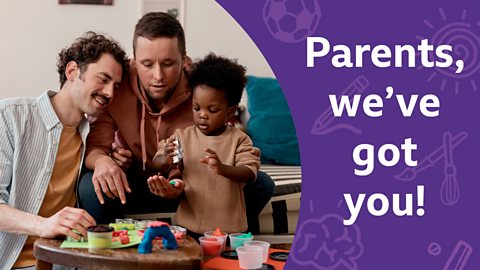
How to tackle anxiety with Dr Anna
Calming techniques to help parents and children manage their anxiety.
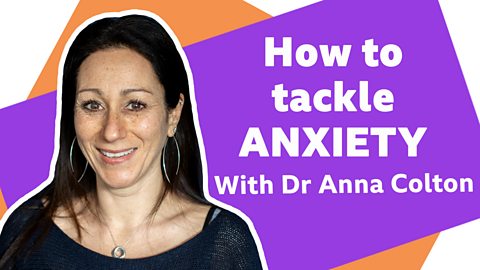
How to help your child embrace boredom
You don't need to be worried if your kids are bored in lockdown - Dr Sandi Mann offers some reasons why.
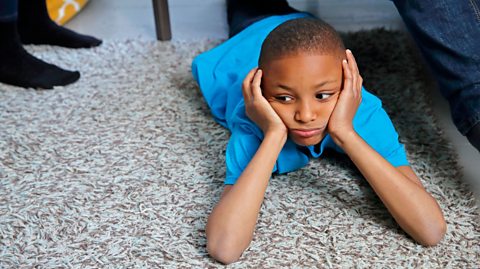
How to transform a smaller space for study or work
Many of us are having to make do with the little spaces in our homes for work or study. Here's how to make them feel bigger!
